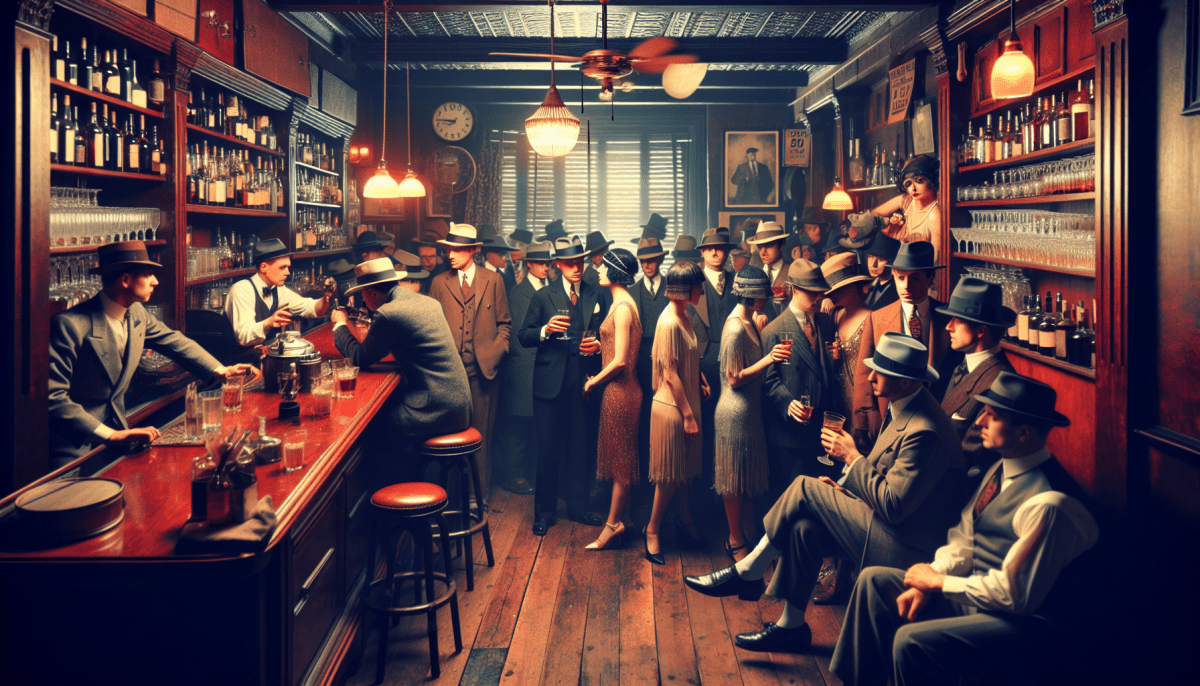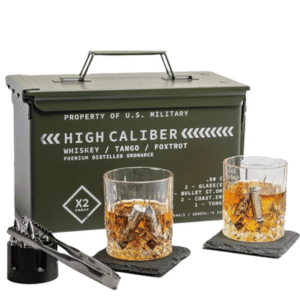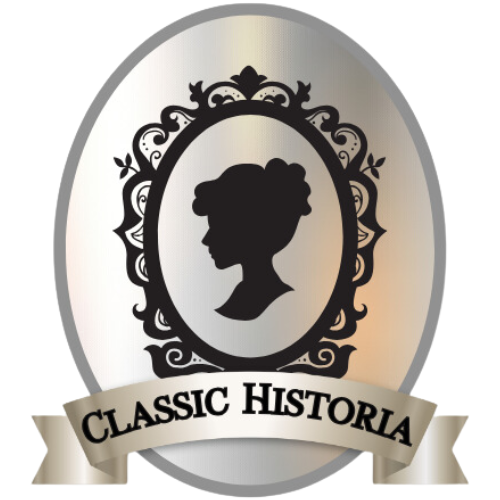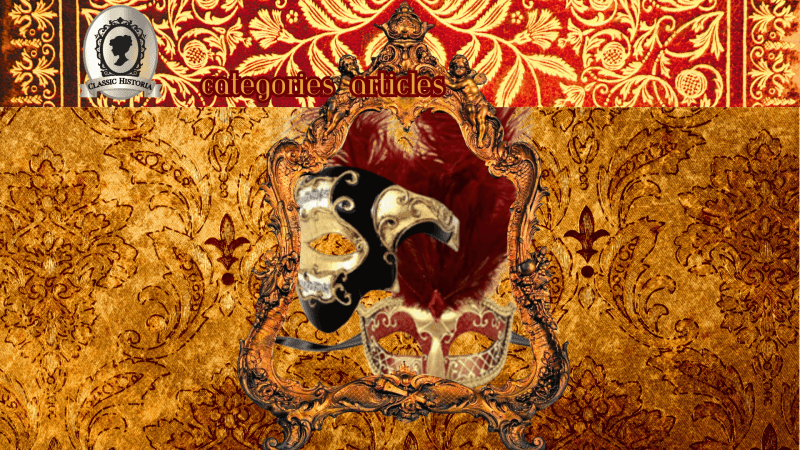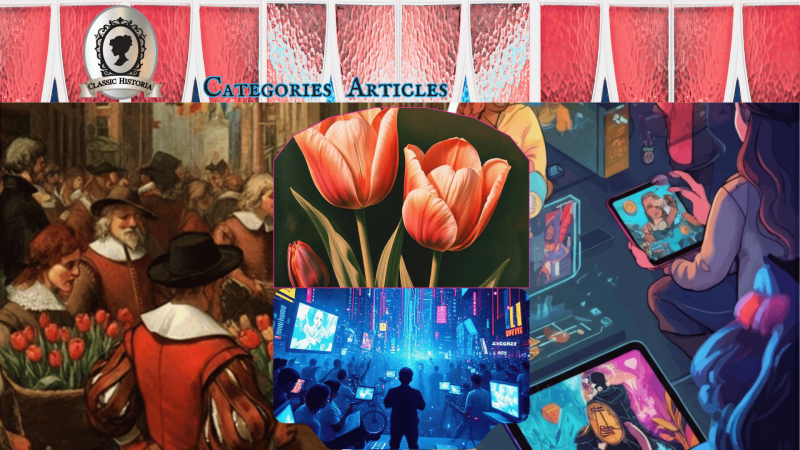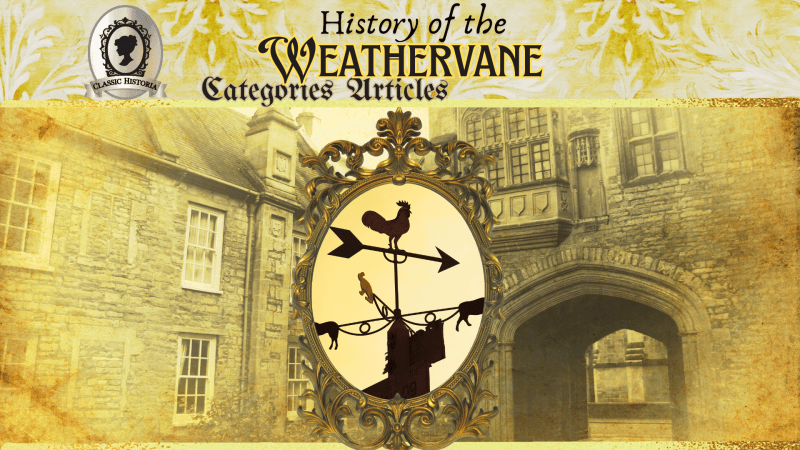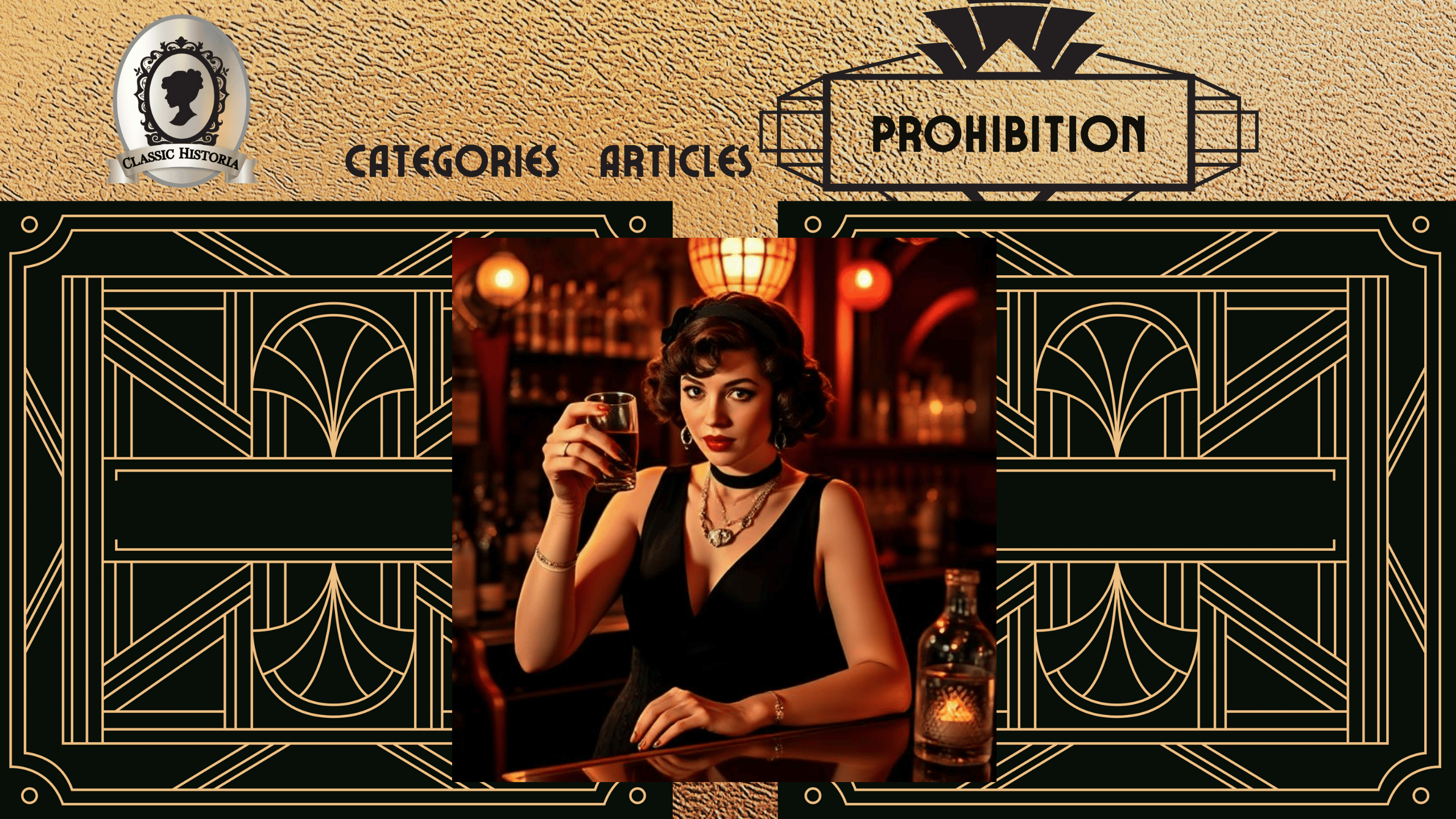
Classic Historia may receive a commission on purchases made through Amazon and eBay affiliate links at no additional cost to you.
The Prohibition era in the United States, lasting from 1920 to 1933, marked a significant and controversial chapter in American history. Sparked by the ratification of the 18th Amendment and enforced by the Volstead Act, this period sought to ban the manufacture, sale, and transportation of alcoholic beverages. Advocates of Prohibition believed that it would curb social ills, promote health, and strengthen the moral fabric of society. However, the unexpected consequences it brought, including the rise of bootlegging and organized crime, created a tumultuous reality that sharply contrasted with its intended goals.
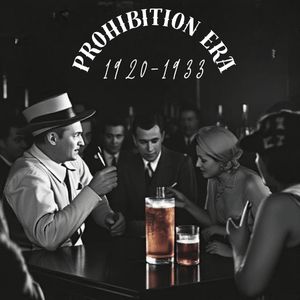
- The 18th Amendment
The 18th Amendment, ratified on January 16, 1919, marked the first and only constitutional amendment in United States history to impose a nationwide prohibition on alcohol. It declared the manufacture, sale, and transportation of intoxicating liquors illegal but conspicuously left out the ban on consumption. The amendment officially went into effect on January 17, 1920, and remained in place until its repeal with the Twenty-First Amendment in 1933.
- The Volstead Act
The Volstead Act, officially known as the National Prohibition Act, was enacted in 1919 to provide enforcement for the Eighteenth Amendment. It defined "intoxicating liquor" as any beverage containing more than 0.5 percent alcohol by volume, leaving little room for exceptions. Although the Act aimed to support the goals of Prohibition, it faced widespread criticism for being difficult to enforce and inadvertently contributed to the expansion of illicit alcohol production and smuggling.
The Roots of Prohibition
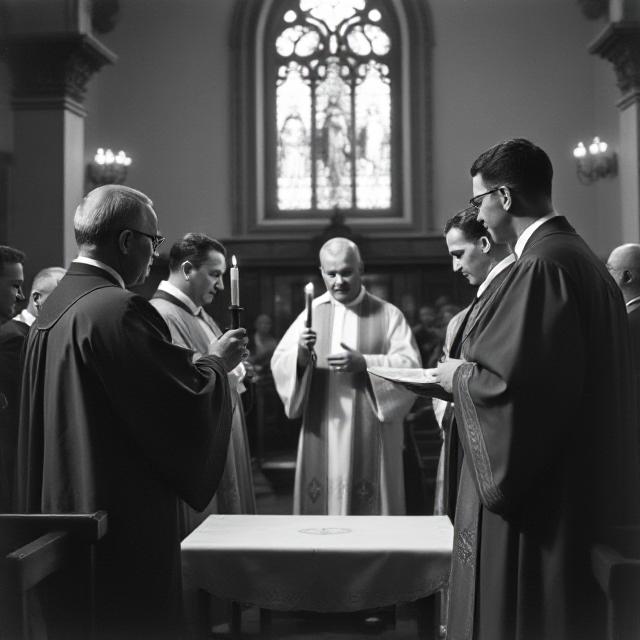
The call for Prohibition was deeply rooted in the temperance movements of the 19th century, led primarily by religious groups and social reformers who associated alcohol consumption with immorality and societal decay. Organizations like the Women’s Christian Temperance Union (WCTU) and the Anti-Saloon League (ASL) played instrumental roles in advocating for a nationwide alcohol ban. Their influence grew as they garnered support from rural, conservative communities and linked alcohol to issues such as marital violence, unemployment, and poverty.
World War I added further momentum to the Prohibition cause. The anti-German sentiment during the war led to public backlash against breweries, many of which were owned by German immigrants. Additionally, conserving grain for troops became a patriotic argument for banning alcohol production. By 1919, the Prohibition movement had gained enough traction to achieve its ultimate goal, culminating in the ratification of the 18th Amendment. However, the implementation of Prohibition had unintended consequences.
The Volstead Act, which enforced Prohibition, was difficult to enforce and led to widespread corruption among law enforcement officials. Bootlegging became a lucrative business for organized crime syndicates, who smuggled alcohol into the country and sold it on the black market. Speakeasies also emerged as underground bars where people could still purchase alcohol illegally.
While some proponents of Prohibition saw a decrease in alcohol consumption and related social issues such as domestic violence and poverty, others argued that it only drove these activities underground and contributed to an increase in organized crime. The economic impact of Prohibition was also significant, with many legitimate businesses associated with the production and
The movement for the elimination of alcohol consumption in the United States did not emerge overnight but was the result of decades of social, political, and religious advocacy. Several key factors contributed to its origin:
- Temperance Movement: Organizations like the American Temperance Society and later the Anti-Saloon League played a crucial role in promoting the idea that alcohol was a root cause of many social problems, such as crime, poverty, and family instability.
- Religious Influence: Many Protestant groups viewed alcohol consumption as immoral and detrimental to society, using their platforms to campaign for temperance and abstinence.
- Rural vs. Urban Divide: Rural communities often saw alcohol consumption as a vice associated with urban areas and immigrants, which fueled the push for prohibition as a means of preserving "traditional" American values.
- Women's Suffrage Support: Many women, particularly those involved with groups like the Women's Christian Temperance Union (WCTU), supported Prohibition as they believed it would protect families from domestic violence and financial ruin caused by alcohol abuse.
- Political Advocacy: Prohibitionists exerted significant pressure on lawmakers, leading to legislative developments such as the Volstead Act and the eventual ratification of the 18th Amendment in 1919.
Each of these factors played a part in laying the groundwork for the nationwide effort to ban the sale and consumption of alcohol.
Interesting Fact
Alcohol remained legal for religious purposes during Prohibition. Sacramental wine used in religious ceremonies was exempt from the ban, allowing clergy and congregants to continue its use.
The Rise of Bootlegging Operations
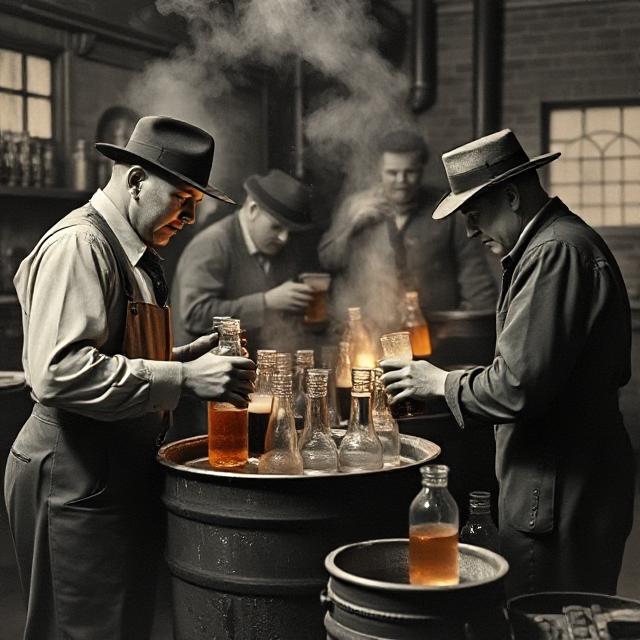
Despite the legal constraints imposed by Prohibition, the American appetite for alcohol did not wane. Instead, it shifted into criminal enterprises fueled by bootlegging—the illegal production, distribution, and sale of alcoholic beverages. The term "bootlegging" itself originated during the 19th century when smugglers hid flasks in their boots, but it gained broader use and notoriety during Prohibition.
Bootleggers devised ingenious methods to smuggle liquor across borders or produce it clandestinely. From hidden compartments in automobiles to elaborate distilleries in basements, underground tunnels, and remote locations, the new ways of those defying the law were remarkable. Cities like Chicago and New York City became infamous hubs of illegal alcohol operations, where speakeasies—secret bars that required a password for entry—flourished. The Roaring Twenties were defined by the decadence and rebellion of this underground culture.
Speakeasies were not just places to drink and party, but also served as a symbol of defiance against Prohibition. They became popular among all social classes, attracting both the rich and the poor. Many influential figures, such as politicians, businessmen, and even law enforcement officials, frequented these hidden establishments.
However, not everyone was able to partake in the rebellious culture of speakeasies. The majority of those who indulged in alcohol during Prohibition were young people, specifically women. This was a significant shift from traditional gender roles, as it was now socially acceptable for women to drink in public spaces.
With the rise of illegal alcohol production and consumption came the rise of organized crime.

Interesting Facts
- During Prohibition of alcohol, fermented grape juice became a clever loophole in the law.
- Known as "wine bricks", these blocks of dehydrated grape juice could be easily shipped to rural areas where they could then be rehydrated and fermented into wine.
Organized Crime Thrives
The Prohibition era inevitably gave rise to a lucrative black market, as criminal syndicates stepped in to meet the public demand for alcohol. Figures like Al Capone, one of the most infamous mobsters of the time, built their empires on bootlegging alcohol on a national scale. These crime bosses capitalized on the absence of legal competition and enforced their dominance with brutal violence. Gang wars, bribery of law enforcement, and political corruption became commonplace as criminals established a shadow economy.
Al Capone's operation in Chicago exemplified the sheer scale of the illicit alcohol trade. The revenue generated from bootlegging by such syndicates empowered these figures to exert considerable influence, not only in criminal organizations but also in local and state governments. The rise of mob-driven violence and corruption would become among the most significant unintended consequences of Prohibition.
$74.99
$69.99
4.8 out of 5 starsTitan Whiskey Glass Set with Tactical Display Box
Experience the Perfect Blend of Sophistication and Rugged Charm with This Exquisite Whiskey Glass Set
Product information
Product Review Score
Product links
Public Backlash and Repeal
By the late 1920s, it became increasingly evident that Prohibition was failing. The idealistic goal of eliminating alcohol consumption had backfired, giving way to widespread lawlessness and disregard for the Volstead Act. Many Americans flouted the regulations either by consuming alcohol in Speakeasies or brewing their own concoctions, often referred to as "bathtub gin."
Public opinion shifted against Prohibition, with critics arguing that the ban had done more harm than good. The economic strains of the Great Depression further solidified opposition, as legalizing alcohol was seen as a way to generate tax revenue and create jobs. Prominent figures, journalists, and even politicians joined the chorus calling for the repeal of Prohibition.
Finally, in 1933, the ratification of the 21st Amendment officially brought Prohibition to an end, repealing the 18th Amendment. This marked the first—and so far only—time in American history that an amendment to the Constitution was rescinded.
"Rules for Thee, Not for Me!"
- During federal Prohibition laws, enforcement of alcohol disproportionately targeted poor and working-class communities, while wealthier individuals were often spared scrutiny.
- Wealthy elites frequently held private parties where alcohol flowed freely, shielded from legal consequences due to their social status or political connections.
- Significant rise of Speakeasies in affluent neighborhoods operated more discreetly and were less likely to be raided compared to those in poorer areas.
- Law enforcement officials sometimes accepted bribes from wealthy individuals, allowing them to bypass restrictions and avoid prosecution.
- The disparity in enforcement highlighted systemic inequalities, with harsher penalties and greater surveillance imposed on vulnerable populations.
- Former President Woodrow Wilson was reported to have stockpiled liquor before Prohibition took effect, ensuring he had a personal reserve despite the nationwide ban.
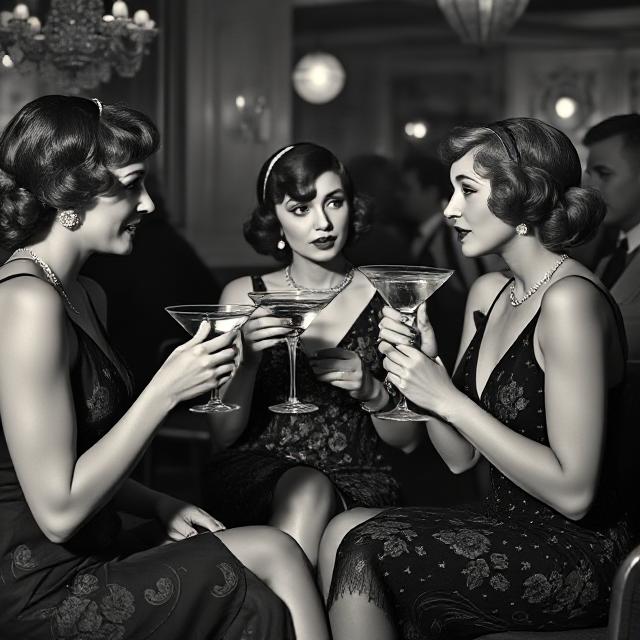
Legacy of Prohibition
The era of bootlegging and Prohibition left a lasting legacy on American society. While the experiment to legislate morality largely failed, it deeply influenced the nation's culture, law enforcement, and organized crime. Prohibition highlighted the complexities of regulating personal behavior through legislation and underscored the unintended consequences of such measures.
It also left an imprint on the nation's social fabric. Speakeasies and jazz clubs became cultural icons of the Roaring Twenties, and the defiance against Prohibition contributed to the loosening of societal norms. Meanwhile, the lessons learned from Prohibition continue to inform contemporary debates on issues like drug legalization and federal government regulation of personal freedoms.
The story of Prohibition is a compelling reminder of the interplay between ideals and reality, and how unintended consequences can shape history in profound ways. Though it aimed to better society, Prohibition instead opened the door to an underworld of criminal activity and catalyzed a cultural transformation that remains vivid in history.
| Name | Status During Prohibition |
|---------------------|-----------------------------------------|
| George Remus | A former lawyer turned infamous bootlegger, often referred to as the "King of the Bootleggers" due to his vast and highly organized operations. |
| Real McCoy | A nickname attributed to Bill McCoy, a rum-runner who became famous for his high-quality, unadulterated liquor during Prohibition. |
| Queen of the Bootleggers | A title often associated with Gertrude Lythgoe, a prominent female bootlegger who smuggled liquor into the United States. |
Like this article? Discover more at Classic Historia for a deeper exploration into the past that has shaped our world.
Stay connected with Classic Historia and discover more timeless treasures by following us on our social media platforms:
"With Classic Historia, you can find the perfect gift for any occasion or add a touch of nostalgia to your own home."
Business Phone Number:
(833) 222-7544
Business Address:
Classic Historia
1220 Oak Street, Suite J PMB1007
Bakersfield, CA 93304-1072
United States
